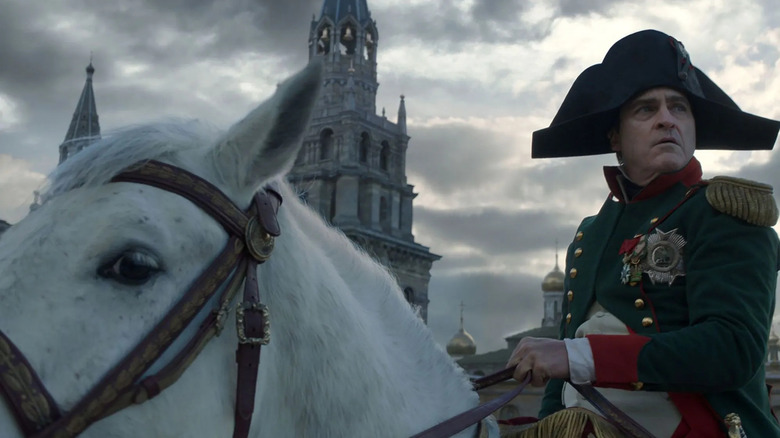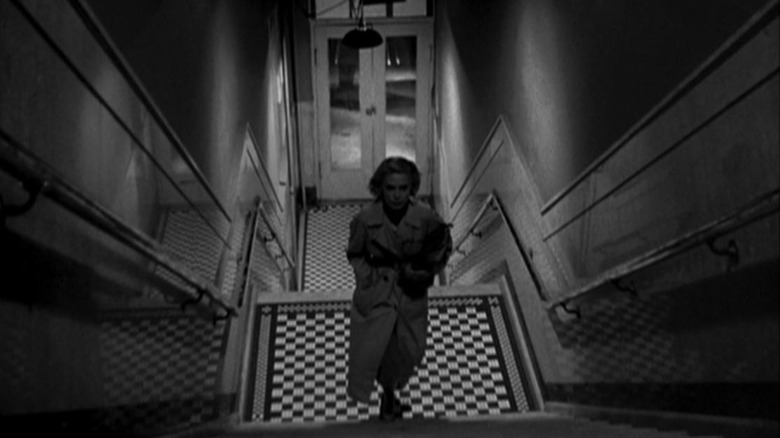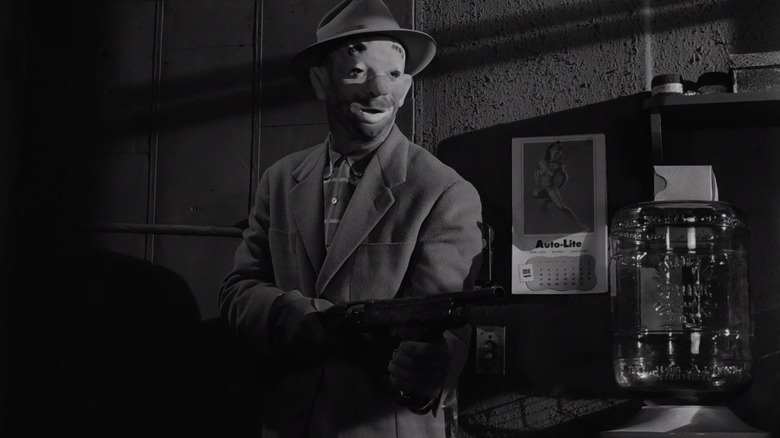Director Stanley Kubrick Wrote Three Movies That Were Never Released To The Public
The most notorious unmade Stanley Kubrick project is probably his "Napoleon," a massive biopic that the director infamously researched for years. In 2012, the Los Angeles County Museum of Art hosted a Kubrick exhibit, and guests were permitted to see Kubrick's filing cabinet where he stored thousands of hand-written notecards, each one detailing a single day in Napoleon Bonaparte's life. Kubrick worked on "Napoleon" in the 1970s, and claimed he wanted Jack Nicholson to play the part. Kubrick wrote a screenplay, secured filming locations in Romania, and was all ready to go. The 1970 film "Waterloo" bombed, however, and the then-recent film version of "War and Peace" threatened to flood the market with too much Napoleon. A lot of Kubrick's "Napoleon" research went into the production of 1975's "Barry Lyndon."
Kubrick's unrealized projects are plentiful. Audiences may also know all about Kubrick's plans to make "A.I.: Artificial Intelligence" near the end of his life, and how he eventually passed the project over to Steven Spielberg. Others may know about his unmade World War II drama "Aryan Papers," a film about a young boy and his aunt hiding from the Nazis. Kubrick ended up dropping that film because of the quality of Spielberg's "Schindler's List" in 1993, a film he felt he couldn't top. He also realized he didn't want to make a film about the Holocaust as it was too depressing for him.
This is nothing to say of films like "Shadow on the Sun" or "Lunatic at Large," which deep-cut Kubrick fans might already know about.
It seems, also, that Kubrick wrote several screenplays that he never showed to anyone and that never entered pre-production. Kubrick talked about his unreleased scripts in a vintage interview with Michel Ciment, handily stored on the website Visual Memory.
Stanley Kubrick's 'The Burning Secret'
Early in his career, Kubrick was a photographer, and his style was naturalistic, even gritty. Kubrick's early photographs, though kinetic, wouldn't lead one to predict his balletic hermetic ascetic aesthetic. His early movies, drawn from his photos, are dusty and shadowy and sweaty. Many have seen his films "Fear and Deasire" (1952), "Killer's Kiss" (1955), and "The Killing" (1956) and have been struck by their humanity and gruffness; they are a far cry from the sterile world of "2001: A Space Odyssey."
It was during this period that Kubrick banged out a screenplay based on a notable 1913 German novella. The director said:
"One was a screenplay of Stefan Zweig's story, 'The Burning Secret,' which Calder Willingham and I wrote in the middle fifties, for Dore Schary at MGM, after I made 'The Killing.' The story is about a mother who goes away on vacation without her husband but accompanied by her young son. At the resort hotel where they are staying, she is seduced by an attractive gentleman she meets there. Her son discovers this but when mother and son eventually return home the boy lies at a crucial moment to prevent his father from discovering the truth."
He added: "It's a good story but I don't know how good the screenplay was."
Notably, "The Burning Secret" had already been adapted to film in 1923 by director Roche Gliese, and in 1933 by director Robert Siodmak. The 1933 version featured German stars Alfred Abel and Hilde Wagener. Because the story involved uncritical themes of marital infidelity, Siodmak's film was attacked by Joseph Goebbels. Kubrick's film would have been an English-language remake. Incidentally, "The Burning Secret" was remade in English in 1988 with Faye Dunaway.
Stanley Kubrick's 'Mosby's Rangers' and 'I Stole 16 Million Dollars.'
Kubrick also recalled, very briefly, a war picture he wanted to make:
"A few years later, I wrote an incomplete screenplay about Mosby's Rangers, a Southern guerilla force in the American Civil War."
"Mosby's Rangers" was the nickname given to the 43rd Virginia Cavalry Battalion of the Confederate Army, a unit that did very little for the war effort other than to interrupt Union supply lines and generally be a nuisance. After the Civil War, John S. Mosby would, perhaps bafflingly, become the campaign manager for Ulysses S. Grant. Mosby noted that his conversion from the right-leaning Democrats to the left-leaning Republicans earned him more hate from the South than he received from the North while leading a Confederate charge. In 1967, Disney released a TV movie called "Moseby's Marauders" starring a young Kurt Russell as one of the titular soldiers.
Finally, Kubrick noted a heist movie he was interested in making. He said:
"Around that time I also wrote a screenplay called 'I Stole 16 Million Dollars,' based on the autobiography of Herbert Emmerson Wilson, a famous safe-cracker. It was written for Kirk Douglas who didn't like it, and that was the end of it. I must confess I have never subsequently been interested in any of these screenplays."
"I Stole $16,000,000: The Amazing Confessions of the King of the Safe-Crackers" can still be found on the second-hand market. The fascinating detail Kubrick left out was that Wilson spent many years of his life as a Baptist Minister. Wilson clearly struggled with his faith, as he explosively and suddenly left the cloth behind to study explosives and theft. He eventually became something of a crime lord.
Would these have been good? With Kubrick at the helm, probably.


